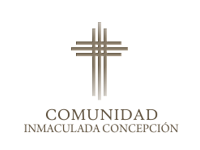Saint Boniface Bishop and Martyr – Apostle of Germany (680-754 A.C.)
Saint Boniface is known with the name of Boniface but his real name was Willibald and his fame came to us, above all for being the apostle of Germany. He was born in 680 in the territory of Wessex, England in a deeply Christian family. He was always a perfect Anglo-Saxon.
When Willibald was only five years old he asked his parents to allow him to move in with a group of monks that passed through Wessex and to live the kind of life that they lived. At the beginning, his parents put some resistance, but when he was seven years old, he was allowed to live with the monks. He spent seven years with them and received a solid Christian formation; when he was 14 years old he moved to the monastery of Nursinling, Diocese of Winchester, and entered as Benedictine of that religious order. He devoted himself to his intellectual and religious training. Then, he was honored as a theology teacher.
More than to progress in the scientific studies-even though that they were also sacred- his progress was more notorious on his holiness; those people that were related to him noticed the progress he made across the range of virtues and demands which carries a genuine religious and monastic life.
Willibald was ordained as a priest in 716 and he went to Thuringia with two of his fellow priests; at that moment, it was not yet time for his apostolate. He returned to the monastery and then, in the year 718 he traveled to Rome to request the authorization of Pope Gregory II for him to go as a missionary in the continent. The Pontiff was pleased to hear what Willibald wanted to do and at the moment of giving the blessing to him, the Pontiff said: “Soldier of Christ, you will be called Boniface.” This name means “benefactor”. The Pope welcomed him with great kindness, because as well as the laudatory credentials of the Bishop of Winchester, the Pope himself soon discovered in Boniface’s soul qualities that were not common in a fervent missionary. He was not wrong.
Boniface moved to Friesland in 719. He lived there for three years; then he left to Hesse converting a great number of Barbarians. He founded the first monastery in Amoneburg, at the Shore of Olm River. Then, he returned to Rome and the Pope ordained him Bishop and Apostolic Missionary in Germany. “Go to bring the kingdom of God to all the nations that you shall find in your way and in that spirit of virtue, simplicity and evangelical charity spread the word of the Testaments to the people’s souls”. This is the way that he begins a spirited ministry demonstrating how should be an evangelization process with a method, an organization, and a wonderful effectiveness. There is no doubt that this is one of the most beautiful evangelization stories which tells the history of the church in its twenty centuries. He went from city to city, town to town and organized and established the church hierarchy, founded churches, monasteries for monks and nuns, and talked about Jesus to rich and poor, kings and peasants.
Shortly after, Boniface founded the convent of Fritzlar on the territory of Hesse. In year 725 he returned to Turingia and, continuing his missionary work and founded the monastery of Ordruf. He presided a council where it was Carloman, son of Carlos Martel and uncle of Carlomagno that supported him on his venture. In year 737, he returned to Rome and the Pope raised him to the dignity of Archbishop of Maguncia. He continued his evangelizing mission and a great amount of collaborators joined him. There were also women that arrived from England to contribute to the conversion of the German country, that were racially related to them. Among these women, there were some that stood out as Saint Tecla, Saint Walburga and a cousin of Boniface, Saint Lioba. This was the origin of the convents of women. Boniface continued founding monasteries and celebrating synods, both in Germany and France, as a result of which both territories were intimately united to Rome.
The old preacher had reached the age of eighty and wished to return to Frisia (present Holland). Fifty two of his fellow priests were with him. They crossed many channels, until they came to the heart of the territory. When disembarking near Dochum, thousands of inhabitants of Frisia were baptized. On Whit Sunday they had to receive the sacrament of the confirmation. Boniface was reading, when he heard the sound of people approaching. He went out thinking that they would be the newly converted, but what he saw was an armed mob with evident determination to kill him. The missionaries were attacked with lances and swords. Boniface shouted: “God will save our souls”. One of the criminals fell upon the old archbishop, who raised mechanically the gospel book that he had in his hands, as a way to protect himself. The sword divided both the book and the head of the missionary. This happened on June 5th of year 754.
The grave of Saint Boniface is in Fulda, in the monastery that he founded. He is represented with an ax and a demolished oak tree at his feet, in memory of the tree that gentiles worshiped as sacred and that Boniface struck in Hesse. He is the apostle of Germany and the patriarch of the Catholics of that country.
St. Boniface

8330 Johnson St. Pembroke Pines, FL 33024
Parish Phone (954) 432-2750


